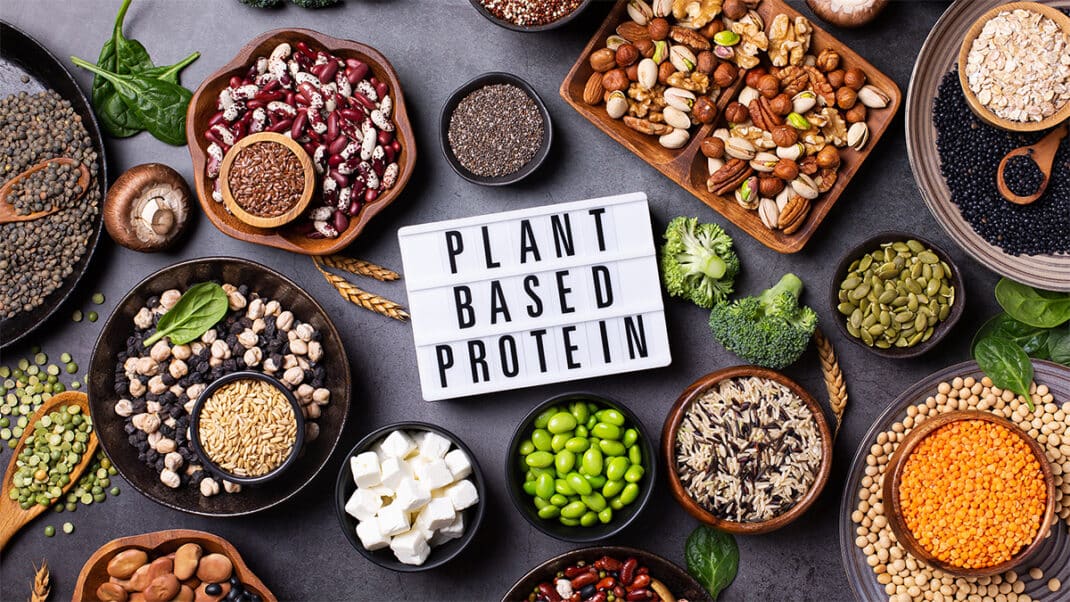Plant-Based Eating Pros and Cons
Check out the differences in nutrition for plant-based eaters versus and meat eaters.

With plant-based eating becoming more commonplace, it’s good to know the potential nutritional advantages and disadvantages of this dietary lifestyle.
In a systematic review of 141 observational and intervention studies published between 2000 and January 2020 and published in Nutrients, researchers from the Netherlands made these discoveries about plant-based eating:
- Fiber, polyunsaturated fatty acids (PUFA), folate, vitamins C and E, and magnesium intake was higher among vegetarians and vegans than meat-heaters.
- Eicosapentaenoic acid (EPA) and docosahexaenoic acid (DHA) intake, two important long-chain omega-3 fatty acids found predominantly in seafood, was lower in those who identified themselves as plant-based.
- The consumption and status of vitamins B12 and D, iron, zinc, iodine, and calcium were generally lower in vegans and vegetarians compared with meat-eaters.
- Vegans had the lowest vitamin B12, calcium and iodine intake as well as also lower iodine status and reduced bone mineral density.
- Meat-eaters were found to be at risk of inadequate intakes of fiber, PUFA, α-linolenic acid (ALA), folate, vitamins D and E, calcium, and magnesium.
- Protein intake was lower in people following plant-based diets compared with meat-eaters, but still within recommended intake levels.
The take-home message here is that there appears to be nutrient inadequacies across each of these dietary patterns that should be addressed through adequate nutrition education.
See also: Plant-Based Diets and Meal Timing
Matthew Kadey, MS, RD
Matthew Kadey, MS, RD, is a James Beard Award–winning food journalist, dietitian and author of the cookbook Rocket Fuel: Power-Packed Food for Sport + Adventure (VeloPress 2016). He has written for dozens of magazines, including Runner’s World, Men’s Health, Shape, Men’s Fitness and Muscle and Fitness.





